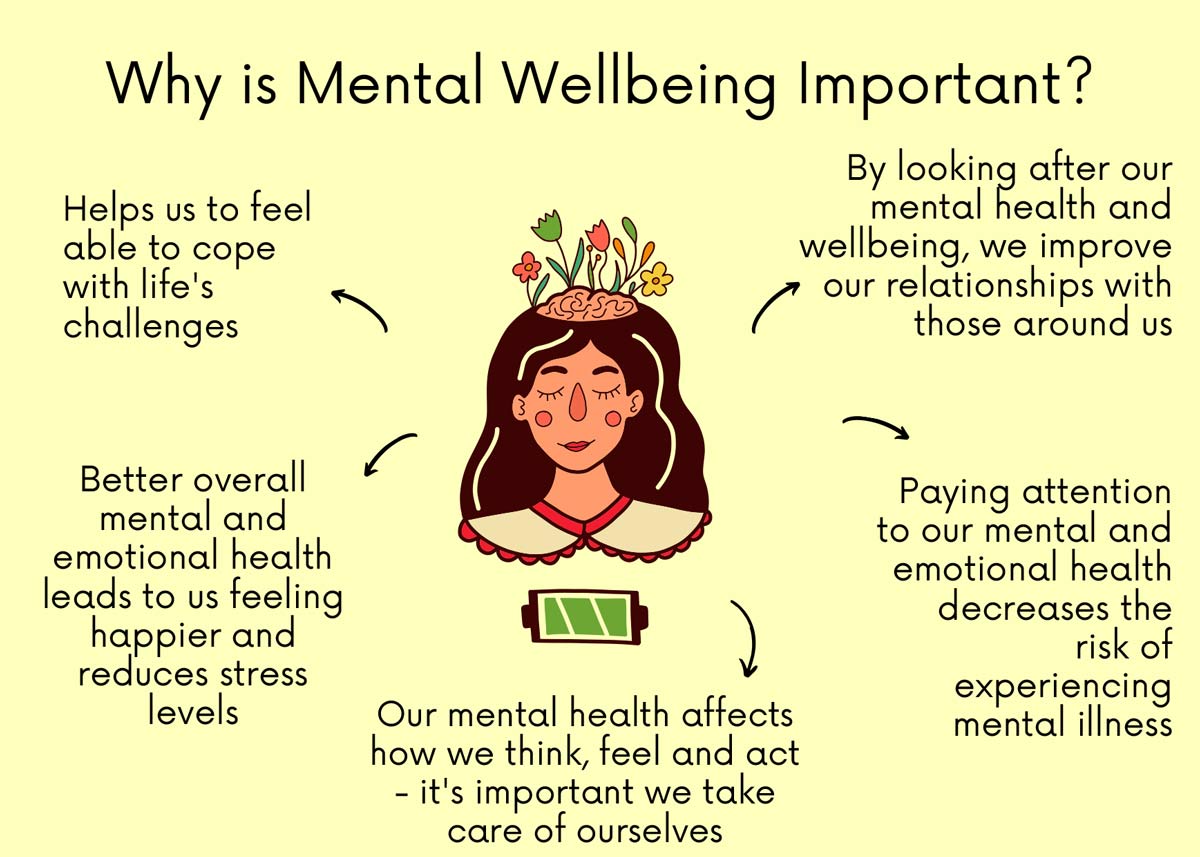A Generation's Wellbeing: The Urgent Need To Invest In Childhood Mental Health

Table of Contents
The Growing Prevalence of Childhood Mental Health Issues
The increase in diagnoses of anxiety, depression, and other childhood mental health issues is alarming. Children and adolescents are experiencing unprecedented levels of stress, impacting their emotional and psychological development.
- Statistics on rising rates of anxiety and depression in children: Recent studies show a significant upward trend in anxiety disorders among children, with some estimates indicating a doubling in the past decade. Similarly, depression rates have risen sharply, particularly among teenagers. These figures paint a concerning picture of a generation struggling with their mental wellbeing.
- Factors contributing to this rise: Several factors contribute to this surge. The pervasive influence of social media, with its constant pressure to conform and its potential for cyberbullying, plays a significant role. Academic pressure, competitive environments, and the fear of failure add to the burden. Family stressors, such as parental conflict or financial instability, can also significantly impact a child's mental health.
- The impact of the COVID-19 pandemic: The COVID-19 pandemic exacerbated existing challenges, leading to increased isolation, disruption of routines, and heightened anxiety surrounding health and safety. The pandemic's impact on childhood mental health is a critical factor that requires sustained attention and intervention.
The Long-Term Impact of Untreated Childhood Mental Health Problems
Ignoring childhood mental health issues has profound and lasting consequences. Untreated conditions can significantly impair a child's ability to thrive across various aspects of life.
- Academic performance and educational attainment: Mental health problems can severely affect concentration, motivation, and academic performance, potentially leading to lower educational attainment and limited future opportunities. Children struggling with anxiety or depression may find it difficult to focus in class, complete assignments, or participate in school activities.
- Social relationships and forming healthy attachments: Mental health challenges can hinder a child's ability to build and maintain healthy relationships with peers and family members. Social isolation and difficulty forming attachments can have lasting effects on their social and emotional development.
- Employment and career prospects: Untreated mental health problems can lead to difficulties in the workplace, affecting job performance, productivity, and career advancement. Individuals who struggle with mental health issues may face challenges in maintaining employment or achieving their professional goals.
- Physical health and increased risk of chronic illnesses: There's a strong correlation between mental and physical health. Untreated mental health issues in childhood can increase the risk of developing chronic illnesses such as heart disease, diabetes, and autoimmune disorders later in life.
- Substance abuse and other risky behaviors: Children struggling with mental health problems are at a higher risk of engaging in substance abuse, self-harm, and other risky behaviors as coping mechanisms. Early intervention is crucial to prevent these potentially devastating outcomes.
The Economic Burden of Neglecting Childhood Mental Health
The economic consequences of neglecting childhood mental health are substantial. The costs associated with untreated mental health problems are far-reaching and affect society as a whole.
- Healthcare costs: Treating mental health issues in adulthood is often more expensive and complex than early intervention. The cumulative healthcare costs associated with untreated childhood mental health problems are significant.
- Lost productivity: Mental health problems can lead to reduced productivity in the workforce, impacting economic growth and contributing to financial losses.
- Social welfare programs: The societal burden of supporting individuals with untreated mental health issues necessitates increased spending on social welfare programs.
Effective Strategies for Improving Childhood Mental Health
Addressing the crisis requires a multi-pronged approach involving increased investment and a collaborative effort from various stakeholders.
- Increased funding for mental health services in schools and communities: Adequate funding is essential to provide accessible and high-quality mental health services for children and adolescents in schools and community settings.
- Training for teachers, parents, and caregivers on recognizing and addressing mental health issues: Educating teachers, parents, and caregivers about recognizing the signs and symptoms of mental health issues is crucial for early intervention and support.
- Early intervention programs: Early identification and intervention are essential for preventing the escalation of mental health problems and improving long-term outcomes.
- Expanding access to affordable mental healthcare for children and families: Ensuring access to affordable and high-quality mental healthcare services for children and families, regardless of their socioeconomic status, is paramount.
- Promoting mental health awareness and reducing stigma: Raising awareness about mental health issues and reducing the stigma associated with seeking help are crucial steps toward encouraging early intervention and support.
- The importance of integrating physical and mental health care: A holistic approach to healthcare is necessary, integrating physical and mental health services to provide comprehensive care for children and adolescents.
The Role of Parents, Educators, and Policy Makers
Addressing the childhood mental health crisis requires a collaborative effort from parents, educators, and policymakers.
- Parental awareness and proactive engagement: Parents play a crucial role in recognizing signs of mental health issues in their children and seeking appropriate support. Proactive engagement and open communication are essential.
- School-based mental health programs and resources: Schools should provide comprehensive mental health programs, including access to counselors, psychologists, and other mental health professionals.
- Government policies and funding allocations: Governments must prioritize mental health by allocating sufficient funding for research, prevention, and treatment programs. Policies should also address systemic issues that contribute to mental health challenges in children.
- Community support programs and initiatives: Community-based programs and initiatives can provide valuable support and resources for children, families, and caregivers.
Conclusion
The rising rates of childhood mental health issues represent a significant societal challenge with far-reaching consequences. Untreated mental health problems can lead to lifelong struggles impacting academic achievement, social relationships, employment, and physical health. Addressing this crisis demands substantial investment in mental health services for children and adolescents, including increased funding, early intervention programs, and comprehensive training for professionals and caregivers. We must prioritize children's mental wellbeing by promoting awareness, reducing stigma, and fostering a supportive environment. Let's work together to create a future where every child has access to the mental health support they need to thrive. Learn more about available children's mental wellbeing resources, advocate for increased funding for child mental health services, and seek help if you or your child needs it. Investing in childhood mental health is investing in a brighter future for our children and our society.

Featured Posts
-
 Italys Little Tahiti A Beach Paradise
May 02, 2025
Italys Little Tahiti A Beach Paradise
May 02, 2025 -
 Discover This Country Your Essential Travel Planner
May 02, 2025
Discover This Country Your Essential Travel Planner
May 02, 2025 -
 Tulsas 2 Am Thunderstorm Threat Increased Chance Of Severe Weather
May 02, 2025
Tulsas 2 Am Thunderstorm Threat Increased Chance Of Severe Weather
May 02, 2025 -
 Full Riot Fest 2025 Lineup Revealed Green Day Weezer Lead The Charge
May 02, 2025
Full Riot Fest 2025 Lineup Revealed Green Day Weezer Lead The Charge
May 02, 2025 -
 Utahs Clayton Keller Reaches 500 Nhl Points
May 02, 2025
Utahs Clayton Keller Reaches 500 Nhl Points
May 02, 2025
